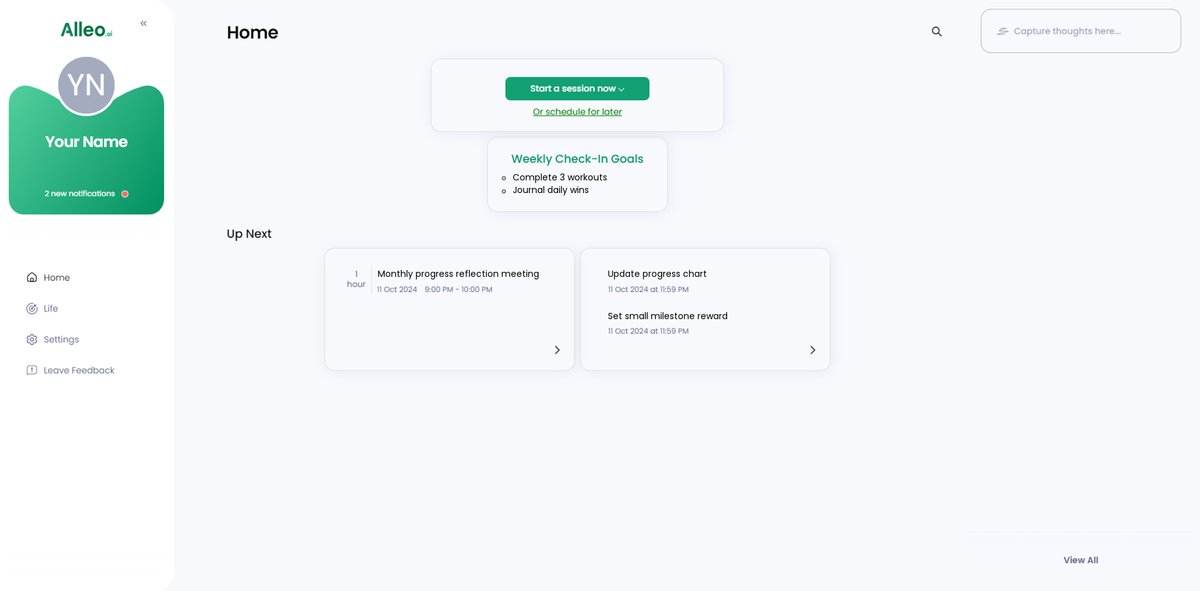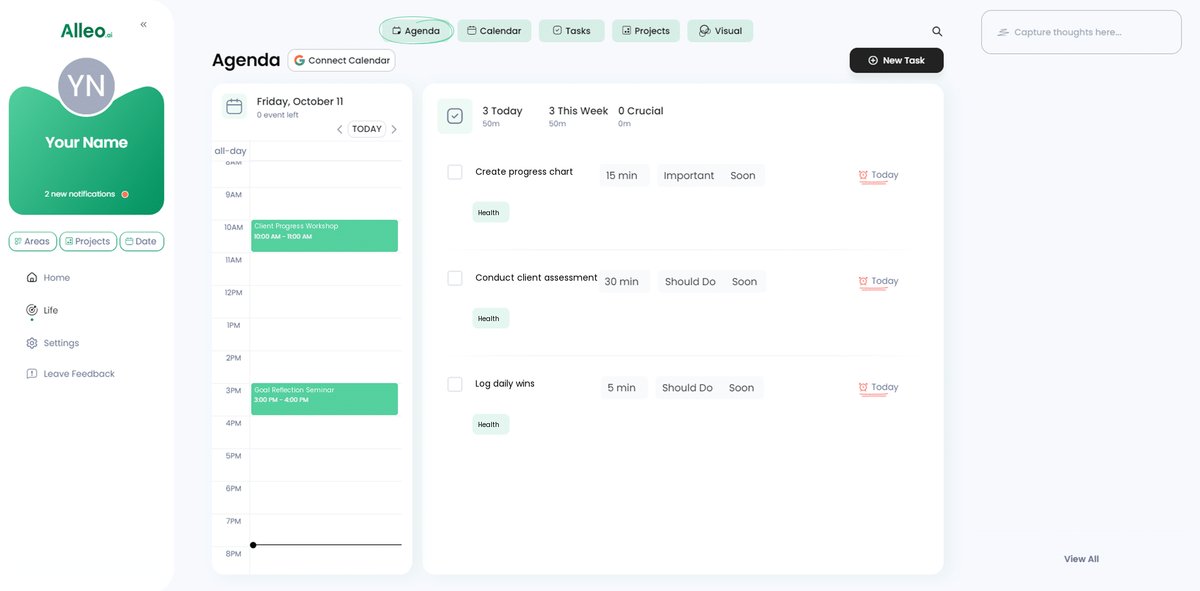6 Essential Strategies to Help Clients Recognize Progress Beyond Specific Goals
Imagine your client just hit a personal best in their workout, but they’re still feeling down because they didn’t meet a specific weight loss goal. This scenario highlights the importance of recognizing client progress beyond goals.
As a life coach, I’ve helped many clients navigate these challenges. In my experience, managing client expectations is crucial for long-term success and measuring personal growth. Holistic therapy outcomes often depend on our ability to help clients see their progress beyond quantifiable metrics.
In this article, we’ll explore strategies to help clients recognize their progress beyond specific goals. You’ll learn about multiple progress tracking methods in therapy, celebrating small victories, and techniques for client self-awareness. We’ll also discuss mindfulness in progress evaluation and the importance of qualitative assessment in counseling.
Let’s dive in and explore how recognizing client progress beyond goals can lead to long-term therapeutic benefits.

Understanding the Root of Client Frustration
When clients focus solely on specific goals, like weight loss, they can easily feel disheartened. Many clients initially struggle with this tunnel vision, overlooking their broader progress. Recognizing client progress beyond goals is crucial for effective progress tracking in therapy.
In my experience, people often find themselves frustrated when they don’t meet a specific milestone. This narrow focus can lead to a negative mindset, affecting their overall motivation and well-being. Developing client self-awareness techniques can help in measuring personal growth beyond quantifiable metrics.
Several clients report feeling demotivated despite making significant improvements in strength or endurance. This frustration not only hampers their morale but can also impact their commitment to their fitness journey. Recognizing small victories and celebrating non-linear progress are essential aspects of holistic therapy outcomes.
It’s essential to address this mindset to ensure clients see the full picture of their achievements. By doing so, you can help them stay motivated and committed to their long-term fitness goals. Implementing mindfulness in progress evaluation can lead to recognizing client progress beyond goals and appreciating the long-term therapeutic benefits.

A Roadmap to Recognizing Progress Beyond Specific Goals
Overcoming this challenge requires a few key steps. Here are the main areas to focus on for recognizing client progress beyond goals and measuring personal growth.
- Use multiple progress tracking methods: Track diverse metrics like strength gains, endurance, and flexibility for holistic therapy outcomes.
- Implement regular client self-reflection sessions: Schedule monthly meetings to discuss progress and feelings, enhancing client self-awareness techniques.
- Celebrate small wins and milestones: Acknowledge and reward small achievements regularly, recognizing small victories in the therapeutic process.
- Create visual progress charts or timelines: Develop personalized visual aids to show improvements and celebrate non-linear progress.
- Conduct periodic holistic assessments: Perform comprehensive assessments every six months, focusing on qualitative assessment in counseling.
- Encourage journaling of non-goal achievements: Provide templates for tracking daily successes, promoting mindfulness in progress evaluation.
Let’s dive in to explore these strategies for recognizing client progress beyond goals!
1: Use multiple progress tracking methods
Using multiple progress tracking methods helps clients see their achievements from various angles, recognizing client progress beyond goals.
Actionable Steps:
- Track weekly improvements in strength, endurance, and flexibility, focusing on measuring personal growth.
- Conduct quarterly fitness assessments to measure overall health changes and holistic therapy outcomes.
- Monitor progress with visual aids like graphs and charts, emphasizing client self-awareness techniques.
Explanation:
These steps matter because they provide a well-rounded view of progress, preventing clients from feeling stuck on a single goal and recognizing small victories.
For instance, using diverse metrics helps clients see improvements in areas like strength or endurance, even if they haven’t met a specific weight loss target, celebrating non-linear progress.
According to an article on BetterUp, setting realistic goals and reflecting on them is vital for maintaining momentum and motivation, aligning with goal-setting beyond quantifiable metrics.
By tracking multiple aspects, clients can appreciate their overall journey and stay motivated, enhancing mindfulness in progress evaluation and recognizing client progress beyond goals.

2: Implement regular client self-reflection sessions
Implementing regular self-reflection sessions is crucial for recognizing client progress beyond goals and helping clients stay motivated.
Actionable Steps:
- Schedule monthly reflection meetings with clients to discuss their progress and feelings, focusing on holistic therapy outcomes.
- Encourage clients to set aside time each week for personal reflection, using a structured worksheet to enhance client self-awareness techniques.
- Review client achievements and challenges during these sessions to reinforce positive changes and celebrate non-linear progress.
Explanation:
These steps matter because they help clients gain a balanced perspective on their progress. Regular self-reflection allows clients to appreciate their journey and stay committed, recognizing small victories along the way.
According to BetterUp, reflecting on goals is essential for long-term success. By fostering self-awareness, clients can maintain motivation and recognize their achievements beyond specific goals, incorporating mindfulness in progress evaluation.
These sessions pave the way for a deeper understanding of their progress, ensuring sustained engagement and satisfaction while measuring personal growth and long-term therapeutic benefits.

3: Celebrate small wins and milestones
Recognizing client progress beyond goals and celebrating small wins is crucial for maintaining client motivation and commitment.
Actionable Steps:
- Acknowledge small achievements in sessions.
- Celebrate when a client completes a workout streak or hits a new personal best, focusing on recognizing small victories.
- Create a rewards system for milestones.
- Offer small rewards like a free training session or a public shoutout for consistent efforts, enhancing client self-awareness techniques.
Explanation:
These steps matter because they help clients stay motivated by recognizing client progress beyond goals. Celebrating small wins can boost mood, improve confidence, and help form good habits, contributing to measuring personal growth.
According to an article on Harvard, recognizing small wins is essential for maintaining momentum. By celebrating milestones, clients feel valued and encouraged to keep pushing towards their goals, aligning with holistic therapy outcomes.
Key benefits of celebrating small wins:
- Boosts motivation and self-confidence
- Reinforces positive habits and behaviors
- Creates a sense of progress and achievement, recognizing client progress beyond goals
Encouraging small celebrations can pave the way for larger successes, ensuring clients feel positive and motivated throughout their fitness journey, emphasizing the importance of recognizing small victories and goal-setting beyond quantifiable metrics.

4: Create visual progress charts or timelines
Creating visual progress charts or timelines helps clients see their achievements clearly and stay motivated, aiding in recognizing client progress beyond goals.
Actionable Steps:
- Develop personalized progress tracking in therapy charts for each client.
- Use graphs to show improvements in various fitness metrics over time, measuring personal growth.
- Create a visual timeline of achievements.
- Include photos, notes, and milestones on a timeline to visualize the journey and celebrate non-linear progress.
Explanation:
These steps matter because they provide clients with a clear, visual representation of their progress, which can enhance motivation and confidence, recognizing client progress beyond goals.
Visual aids like charts and timelines help clients see improvements they might otherwise overlook, supporting client self-awareness techniques.
According to an article on Harvard, recognizing small victories is essential for maintaining momentum.
By using these visual tools, clients can appreciate their overall journey and feel encouraged to continue their efforts, focusing on holistic therapy outcomes.
These visual representations can be powerful motivators, ensuring clients stay engaged and motivated, recognizing client progress beyond goals and embracing mindfulness in progress evaluation.

5: Conduct periodic holistic assessments
Conducting periodic holistic assessments is essential for recognizing client progress beyond goals and adjusting objectives accordingly.
Actionable Steps:
- Perform comprehensive assessments every six months.
- Include evaluations of physical, mental, and emotional health, focusing on measuring personal growth.
- Use assessment results to set or adjust goals.
- Revise and establish new goals based on client feedback and assessment data, incorporating goal-setting beyond quantifiable metrics.
Explanation:
These steps matter because they provide a complete picture of a client’s progress, ensuring all aspects of well-being are considered in holistic therapy outcomes.
According to an article on ABTABA, regular assessments and data collection are crucial for tracking progress. By performing these holistic assessments, clients can see their overall development and stay motivated, recognizing small victories along the way.
Key components of a holistic assessment:
- Physical fitness evaluation
- Mental health and stress level assessment, incorporating mindfulness in progress evaluation
- Lifestyle and habit analysis, focusing on client self-awareness techniques
Periodic evaluations help maintain a balanced perspective on progress, ensuring clients feel positive about their journey and recognize long-term therapeutic benefits, even when experiencing non-linear progress.

6: Encourage journaling of non-goal achievements
Encouraging clients to journal non-goal achievements can help them recognize client progress beyond goals and appreciate their overall progress.
Actionable Steps:
- Provide clients with a journal template to track daily successes unrelated to specific goals, enhancing progress tracking in therapy.
- Suggest noting experiences like improved mood or increased energy levels, fostering client self-awareness techniques.
- Schedule regular reviews of journal entries during sessions, focusing on measuring personal growth.
- Discussing these entries helps reinforce positive changes and build a growth mindset, contributing to holistic therapy outcomes.
Explanation:
These steps matter because they help clients see the broader picture of their progress, recognizing small victories. According to an article on Frontiers in Psychology, relying on multiple sources of information is essential for evaluating outcomes.
Journaling non-goal achievements can boost clients’ morale and keep them motivated, even if specific targets aren’t met, highlighting the importance of goal-setting beyond quantifiable metrics.
Benefits of journaling non-goal achievements:
- Increases awareness of overall progress
- Helps maintain motivation during plateaus, promoting mindfulness in progress evaluation
- Cultivates a positive mindset and gratitude, contributing to long-term therapeutic benefits
This approach ensures clients feel positive about their journey, fostering sustained engagement and celebrating non-linear progress through qualitative assessment in counseling.

Partner with Alleo to Transform Client Progress Recognition
We’ve explored the challenges of recognizing client progress beyond goals and how to address them effectively. But did you know you can work directly with Alleo to make this journey easier and faster, especially when it comes to measuring personal growth?
Alleo is an AI life coach and organizer designed to provide affordable, tailored coaching support. It helps you set and track diverse goals, schedule reflection sessions for client self-awareness techniques, and receive reminders for journaling to aid in recognizing small victories.
Setting up an account is simple. Start by creating a personalized plan that aligns with your coaching needs, focusing on holistic therapy outcomes and goal-setting beyond quantifiable metrics.
Alleo’s coach will follow up on progress, handle changes, and keep you accountable via text and push notifications, supporting mindfulness in progress evaluation and celebrating non-linear progress.
Ready to get started for free and transform your approach to recognizing client progress beyond goals? Let me show you how!
Step 1: Log In or Create Your Account
To get started with Alleo and begin tracking your progress holistically, Log in to your account or create a new one if you haven’t already.

Step 2: Choose Your Focus Area
Select “Setting and achieving personal or professional goals” to align with the article’s emphasis on recognizing progress beyond specific targets, helping you develop a more holistic approach to your personal growth journey.

Step 3: Select “Health” as Your Focus Area
Choose “Health” as your primary focus area in Alleo to align with your fitness goals and overall well-being, addressing the challenges of recognizing progress beyond specific weight loss targets.

Step 4: Starting a Coaching Session
Begin your journey with Alleo by scheduling an initial intake session, where you’ll discuss your goals and create a personalized plan to track your progress beyond specific milestones.

Step 5: Viewing and managing goals after the session
After your coaching session, open the Alleo app to find your discussed goals displayed on the home page, allowing you to easily track and manage your progress.

Step 6: Adding events to your calendar or app
To track your progress and stay accountable, use Alleo’s calendar and task features to add events related to your fitness journey, such as workout sessions, reflection meetings, and milestone celebrations.

Embracing a Holistic Approach to Client Progress
You’ve learned how to help clients recognize progress beyond goals and appreciate their overall growth in therapy.
By using multiple progress tracking methods, encouraging client self-awareness techniques, celebrating small victories, and creating visual aids for measuring personal growth, you empower your clients to recognize their achievements.
Periodic holistic therapy outcome assessments and journaling non-goal successes further ensure a balanced perspective on their journey, focusing on qualitative assessment in counseling.
Remember, it’s about the journey, not just the destination, when recognizing client progress beyond goals.
Empathize with your clients’ struggles and guide them with actionable steps towards long-term therapeutic benefits.
Alleo can support you in implementing these strategies for recognizing client progress beyond goals effortlessly.
Give Alleo a try and transform how your clients view their progress, embracing mindfulness in progress evaluation.
Start for free today and see the difference in goal-setting beyond quantifiable metrics!